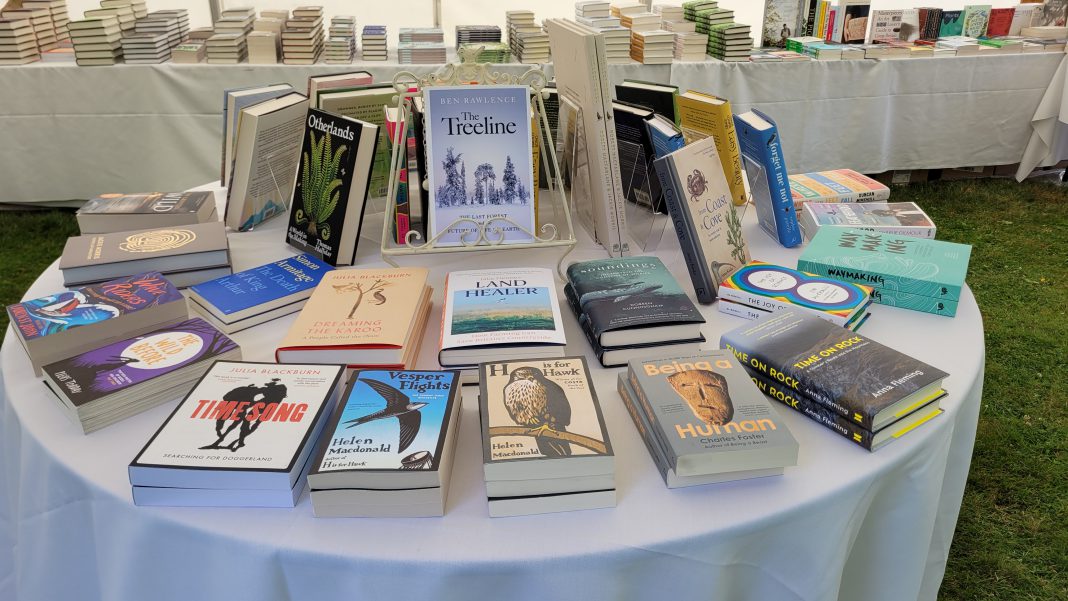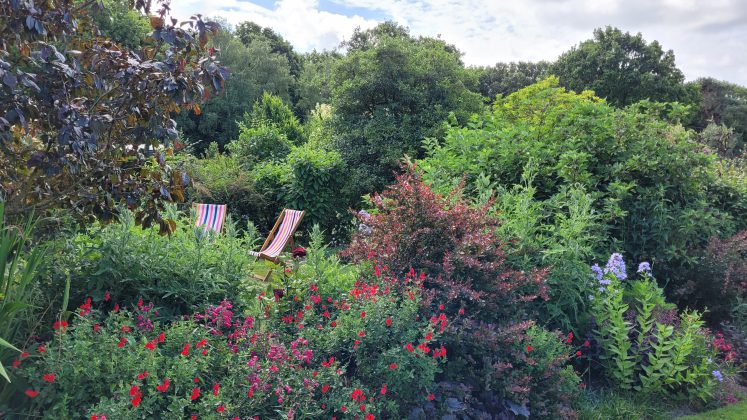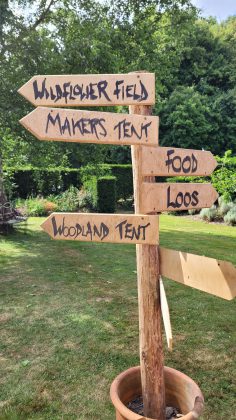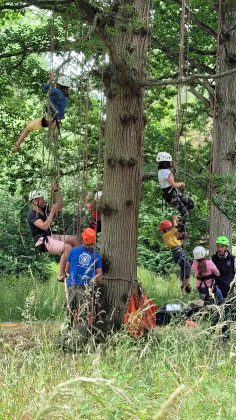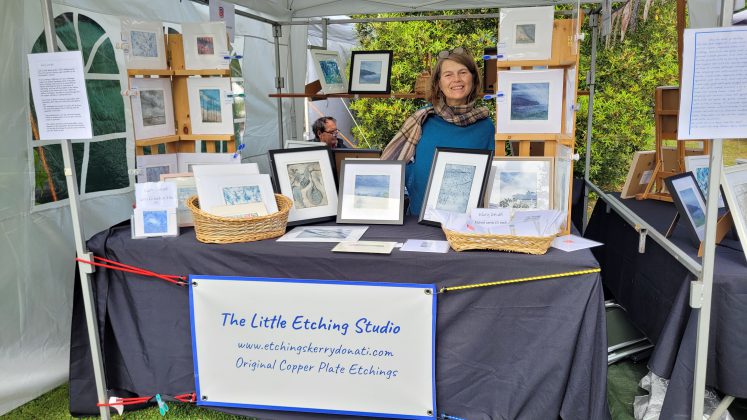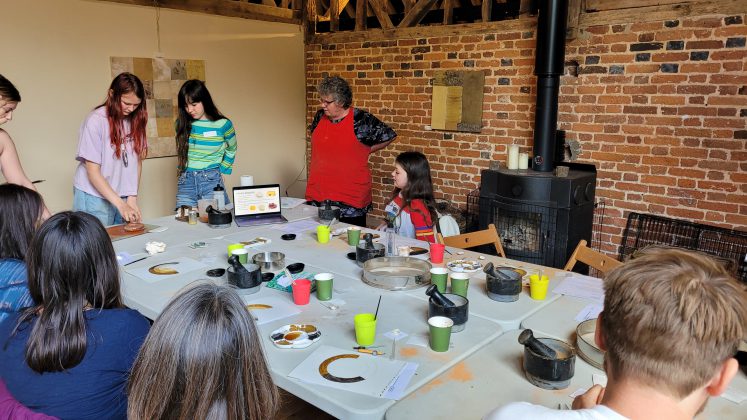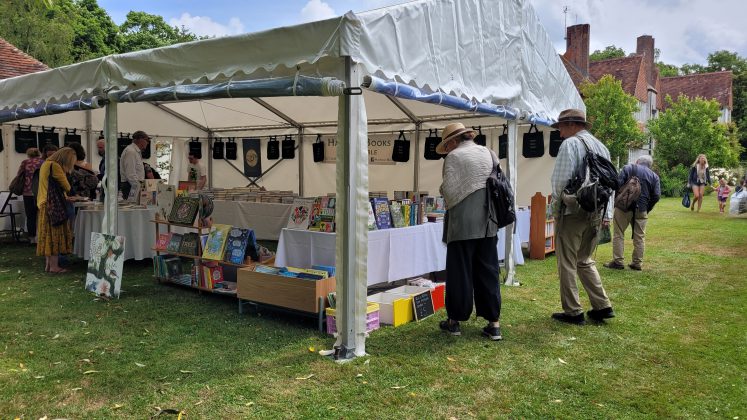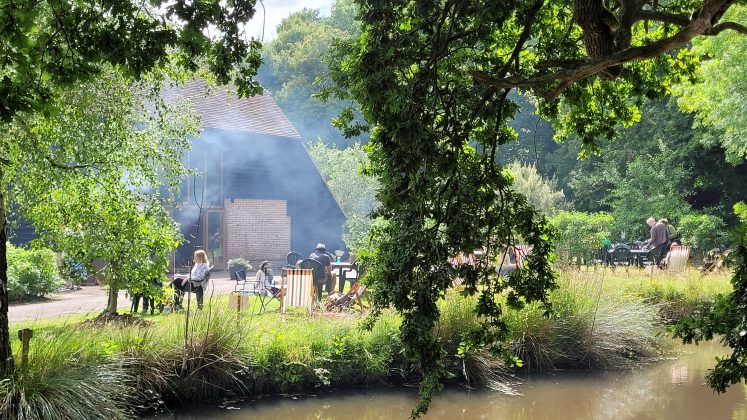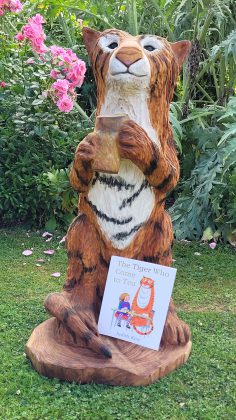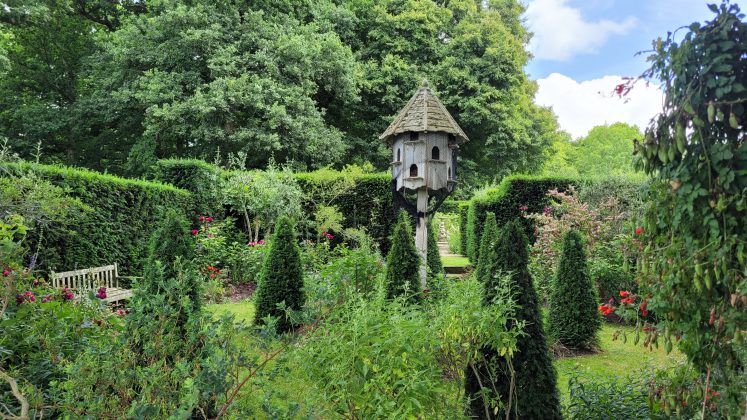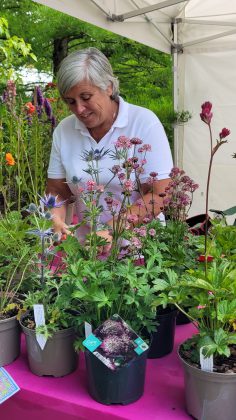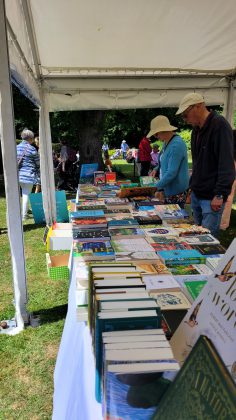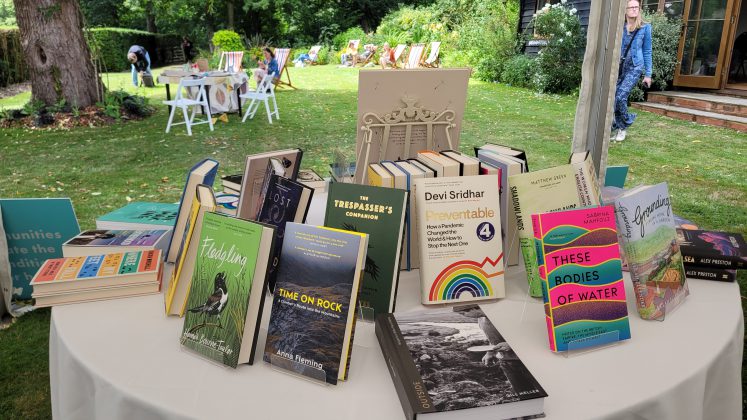Last weekend, the annual Wealden Literary Festival took place in the gorgeous grounds of Boldshaves house and garden. Set within coppiced woodlands of the Kentish Weald close to Woodchurch, it is the perfect place to hold “a celebration of nature, creativity, wellbeing and outdoor adventure”, with talks by authors, as well as creative workshops and fun activities for adults and children alike.
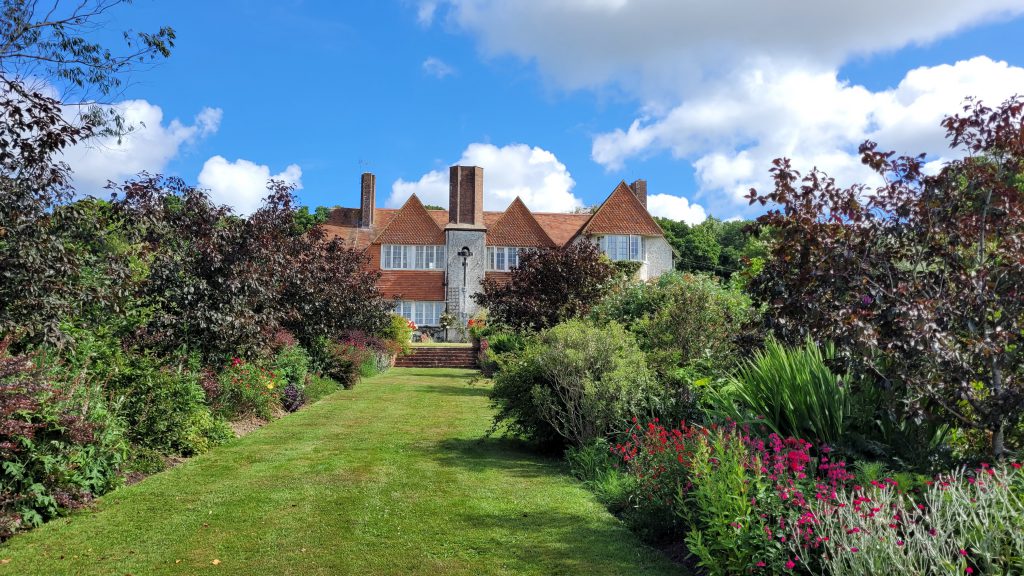
Started in 2015, this small and relatively unknown literary festival features writing by authors who shine a spotlight on the natural world: our relationship with it now and in the past, how it helps us, and the affect human activity has had, and is having, on it.
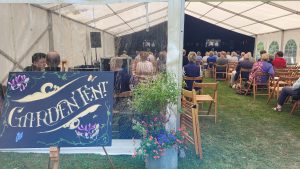
Held in three tents nestled within the gardens, authors talked about their work, read passages and answered questions from the audience. A well-stocked bookstall from Whitstable’s Harbour Bookshop sold books by all the featured writers, who were available for book-signing after the talks.
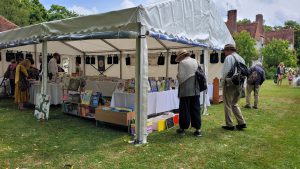
The impressive line-up of writers offered us the opportunity to discover, engage in and reflect on many of the themes and issues of the day. From our relationship with the living world in Charlie Gilmour’s account of taming wild birds (Featherhood) to journeys into the long distant past by palaeobiologist Thomas Halliday (Otherlands: A World in the Making) to Ben Rawlence witnessing the results of climate change in the ever-advancing Arctic treeline (The Treeline: The Last Forest and the Future of Life on Earth), to books on human consciousness and neuroscience by Anil Seth (Being You: A New Science of Consciousness) and Charles Foster (Being a Human: Adventures in 40,000 Years of Consciousness),it was difficult to decide what to see as there were so many of interest.
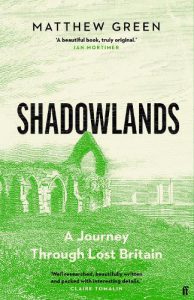
One book featured was Shadowlands: A Journey through Lost Britain by Dr Matthew Green. Beautifully and evocatively written, it is the history of eight places in Britain that, as he says, were “embraced by oblivion” or have not completely vanished but are “spectral echoes of their former selves” whether through the forces of nature, the result of the plague, political or social upheaval or topographical changes.
In his talk, Matthew Green referred to the mysteries of the neolithic settlement of Skara Brae hidden for centuries and revealed when a storm in 1850 stripped away the sand dunes it was buried in. He described the “ghost villages” of Norfolk taken over by the army in the second world war and used then and since for training.
The author told the audience that he was “keen to make these places live again”. The readings from his chapter on Old Winchelsea with vivid descriptions of life in its heyday and of its destruction by the sea certainly achieved this. His book uses a combination of in-depth research, a personal response to the sites, poetic descriptions and evocations of events to resurrect the lost villages including Dunwich in Suffolk, St Kilda in Scotland and Capel Celyn in Wales.
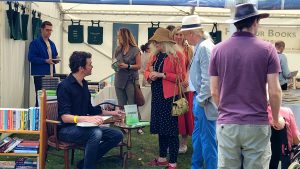
The highlight of the weekend was Simon Armitage, the poet laureate, reading poems from his extensive body of work. Unfortunately, he was unable to appear in person due to the train strike but even via zoom (and unable to hear the audience applause) he held us spellbound through his readings with his witty and dry humour. Referring to the tent, with its folding chairs, flowers and colourful bunting he said, “You look like you are at a wedding – one without a groom” and “It looks like a garden centre there… Don’t forget to pay for your tomatoes on the way out.”
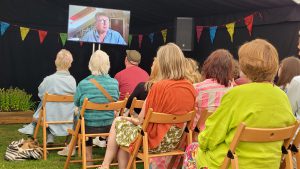
Simon Armitage can capture the pain and joys of adolescence like no other and his poem Zodiac T-Shirt cleverly conjures the bittersweet ”life-cycle of a teenage summer romance”. With his deadpan delivery, Simon Armitage likened his translation of the Middle English poem, The Owl and the Nightingale to “a medieval twitter spat” where the owl and nightingale “slag each other off for nearly 1,800 lines”, adding that “I recommend it if you are in a neighbour dispute.” It is full of wit, wordplay and dazzling language re-interpreting the 12th century text for a modern audience.
A master at capturing the language of everyday speech, his poem Let’s Bird Table is made up of contemporary business-speak, the sort of semi-incomprehensible phrases seen on The Apprentice or Succession. It humorously punctures the ridiculousness of these sayings whilst playfully weaving them together into a surreal world.
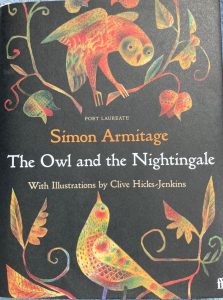
Alongside his observations on modern life, colloquial language and humour, Armitage’s poems frequently are poignant and moving. The Repair Shop written after his father’s death captures the gentleness and tenderness of the programme that his father loved. The Song Thrush and the Mountain Ash is a beautiful and sad evocation of the confusion felt by an elderly patient only able to communicate through a window during lockdown.
Armitage’s reading of his poem on the declining flower Yellow Rattle (Poverty), lists some of the wonderfully rich alternative names given to it around the country. He takes one such name, Poverty, and uses this as an extended metaphor to describe the plant:
Hard times, one by the verge
Hunched, cap in hand
Shaking the poor box…
A penny for Poverty, sir, most kindly
For young book lovers, there was a talk by Piers Torday on his latest book The Wild Before, his prequel to the wonderful The Last Wild trilogy, which is an exciting story dealing with themes of climate change, friendship and hope for the future. Lauren St John talked about her childhood in Africa and her love of animals which inspired her books The White Giraffe and The Snow Angel.
Emerging into the sunlight from the tents, there were plenty of other things for adults and children to enjoy: workshops on pigment making from foraged materials, poetry and writing workshops, craft sessions for children taking inspiration from the woods around. Children’s activities included tree-climbing, bush-craft, fire-craft, den building and other exciting things to keep all the family entertained.
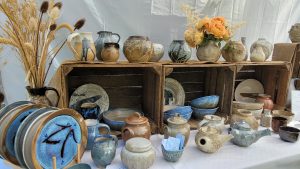
The work of skilled local artists and craftspeople working in wood, weaving, basketry, pottery, soap making, textiles, printing and jewellery were celebrated giving them an opportunity to talk about their work and sell their products.
A wonderful selection of food stalls serving homemade and healthy food including Pizza Lilly, delicious coffee from Coldblow Coffee, tasty vegetarian and vegan tarts and salads from Elizabeth Santer and locally supplied sausages and burgers cooked over coal and hardwood by Wow Cooking made the day complete.
A gentle, relaxed and very English weekend, well-worth visiting if you are a book and nature lover, so look out for it next year!
Boldshaves Garden is open to the public on Fridays, Saturdays and Sundays and public holidays from 2-6pm until October 16 https://boldshaves.com/
Image Credits: Juliet Duff .



